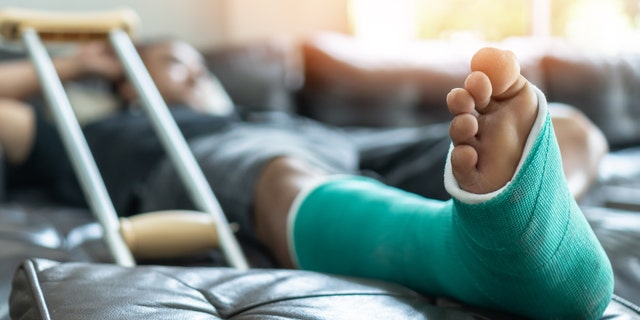What is a vegan diet?
Curious about becoming a vegan? Here is what you need to know about the vegan diet.
Those who do not eat meat, especially vegans, are possibly at an increased risk for suffering bone fractures, per the findings of a new study.
A study conducted by researchers at the University of Oxford and published in BMC Medicine found that people who don’t eat meat, especially vegans, “had higher risks of either total or some site-specific fractures, particularly hip fractures.”

Vegans, vegetarians and pescatarians were also found to have a lower body mass index (BMI) when compared to meat-eaters, which could possibly also contributed to the increased risk. (iStock)
To reach these conclusions, the researchers studied some 54,858 people with an average age of 50. The participants, which were studied between 1993 and 2001, were categorized into four different groups: meat eaters (29,380), fish eaters (8,037), vegetarians (15,499) and vegans (1,982).
Participants filled out questionnaires that involved questions about their diet, smoking habits, alcohol consumption, dietary supplement use, and more. They were monitored for an average of 17.6 years. During that time period, more than 3,900 fractures were reported.
ANTI-INFLAMMATORY DIETS INCLUDING LEAFY GREENS, RED WINE LINKED TO BETTER HEART HEALTH: STUDY
By the end, the researchers found that vegetarians had an estimated 9% increased risk for any fracture when compared to meat-eaters, while vegans were at a 43% increased risk.
As for hip fractures, vegans had a 2.3 times higher risk for this type of fracture when compared to meat eaters. Vegetarians and fish eaters, meanwhile, had about a 25% increased risk.
After adjusting for calcium and protein intake, the researchers determined that non-meat eaters were still at an increased risk, although the risk decreased slightly when these factors were taken into account.
“The higher risks of fractures especially in the vegans remained significant after adjustment for dietary calcium and protein, which suggests that these factors may at most only partly explain the differences in fracture risks by diet group, and other factors may also contribute,” they wrote.
EATING TREE NUTS EVERY DAY CAN IMPROVE SPERM QUALITY, STUDY FINDS
Vegans, vegetarians and pescatarians were also found to have a lower body mass index (BMI) when compared to meat eaters, and that could possibly also contributed to the increased risk.
“Vegetarians and vegans generally have lower BMI than meat-eaters and previous studies have reported an inverse association between BMI and some fractures, particularly hip fractures, possibly due to reasons including the cushioning against impact force during a fall, enhanced estrogen production with increased adiposity, or stronger bones from increased weight-bearing,”’ the researchers said.
The researchers said the study is the “first prospective study of diet group with both total and multiple specific fracture sites in vegetarians and vegans, and the findings suggest that bone health in vegans requires further research.”
>>>details
